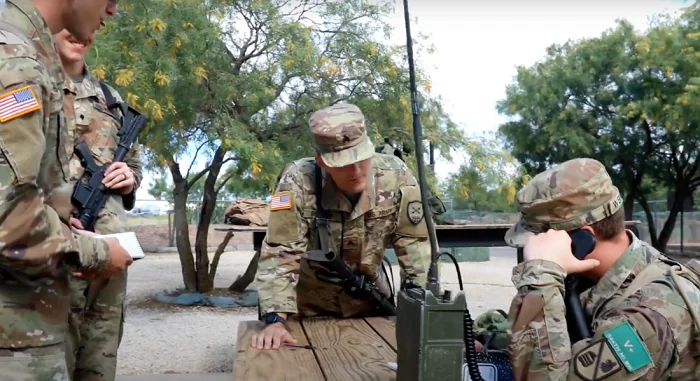Are you intrigued by the world of signals intelligence and foreign communications? Do you have a knack for languages and a desire to serve your country? If so, the journey to becoming a 35P Cryptologic Linguist in the U.S. Army might be the perfect path for you. This comprehensive guide will not only outline the requirements and training involved but also shed light on the exciting opportunities this MOS offers in both military and civilian realms.
Why Read This Article?
Before we dive into the details, you might wonder why you should invest your time in reading about MOS 35P. Here’s why:
Unique Career Path: MOS 35P is a unique career path that combines linguistics, intelligence analysis, and military service. It offers a distinctive way to contribute to national defense.
High Demand Skills: The skills you acquire as a 35P, including foreign language proficiency and signals analysis, are in high demand both in the military and in civilian sectors such as government agencies and private industry.
Career Advancement: MOS 35P provides opportunities for career advancement and specialization, allowing you to continually develop your expertise.
Fulfilling Service: Serving as a 35P allows you to directly impact national security by identifying and interpreting foreign communications that are vital to military intelligence.
With these compelling reasons in mind, let’s explore the world of MOS 35P in more detail. Now, let’s delve into each of these topics.
1. Signals Intelligence Unveiled: What is MOS 35P All About?
Signals Intelligence (SIGINT) is the interception and analysis of foreign communications, and MOS 35P is all about becoming a specialist in this field. As a 35P Cryptologic Linguist, your primary role is to identify and interpret foreign language communications. This includes understanding changes in transmission modes, categorizing signals by activity type, and providing essential information to support mission requirements.
2. Becoming a Signals Intelligence Linguist: The Requirements and Eligibility
To embark on the path of becoming a 35P, you must meet certain eligibility criteria. These include being a U.S. citizen, passing the Armed Services Vocational Aptitude Battery (ASVAB) with a minimum score, and meeting physical requirements. Additionally, you must have no record of conviction in a civil court for any offense other than minor traffic violations.
3. From Basic Training to Advanced Language Proficiency:
The journey to becoming a 35P involves several stages of training. It begins with basic training, followed by advanced individual training (AIT) at the Defense Language Institute (DLI) Foreign Language Center. Here, you’ll receive language training specific to your assigned geographic area.
4. The Role of a 35P: Analyzing Foreign Communications:
As a 35P, you’re responsible for identifying and analyzing foreign communications at all echelons using signal equipment. Your expertise is crucial in providing lists and summaries of intercepted foreign communications, which play a vital role in military intelligence and decision-making.
5. Civilian Job Prospects: The Transition After Service:
One of the significant advantages of pursuing a career as a 35P is the potential for a rewarding civilian career after your service. The skills you acquire, such as foreign language proficiency, signals analysis, and intelligence interpretation, are highly sought after in fields such as government agencies and private industry.
6. Specialization Opportunities: Advancing Your 35P Career:
As you gain experience in the field, you’ll have opportunities for specialization within the 35P MOS. Specialization can further enhance your expertise and open doors to more advanced roles within the military.
7. The Defense Language Institute Experience: A Crucial Component:
DLI Foreign Language Center is a pivotal part of your training as a 35P. Here, you’ll receive intensive language instruction that equips you with the proficiency needed to analyze foreign communications effectively.
8. The DLAB Challenge: Testing Your Language Aptitude:
Before attending DLI, you’ll need to pass the Defense Language Aptitude Battery (DLAB), a test that assesses your language aptitude. Scoring well on the DLAB is essential, as it determines your eligibility for language training and specialization.
9. Geolocation and SIGINT: Using Signals Equipment for Analysis:
A significant part of your role as a 35P involves operating systems and equipment for signals intelligence. You’ll learn to identify the source of intercepted signals and geolocate them, providing critical information for military intelligence.
10. Physical Requirements and Language Proficiency: Keys to Success:
Meeting physical requirements and continually improving your language proficiency are essential for success as a 35P. Physical fitness ensures you can carry out your duties effectively, while language proficiency enables you to accurately interpret foreign communications.
Conclusion:
In summary, pursuing a career as a 35P Cryptologic Linguist is a unique and rewarding path that combines language skills, signals intelligence, and military service. Whether you aspire to serve your country, transition to a fulfilling civilian career, or specialize in the field of signals intelligence, MOS 35P offers a world of opportunities.
Remember, your role as a 35P is critical to national defense, and the skills you acquire are in high demand. So, if you have a passion for languages, a keen interest in intelligence analysis, and a desire to make a difference, consider taking the first step toward becoming a 35P and unlocking a world of possibilities.

